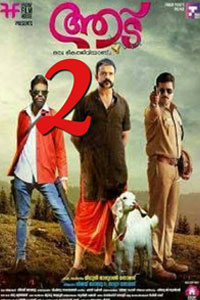Pakal - the debut directorial venture of M.A. Nishad fulfills the expectations that we have from a politician turned director, as it delves into a very relevant and serious issue. The film also offers some solutions that are often heard from idealists.
Pakal takes us into the world of farmers, of the high ranges of Wayanad District of Kerala, who are forced to commit suicide following financial problems. The story has a lot of potential with a relevant political issue and there are some political comments too -- like hints at the failure of the government machinery and religious sabha, which ought to come to the aid of the peasants. The film opens with the protagonist Nandakumar, who is a reporter of the television channel Kerala Today, being sent to Pannakamkudi to do a regular series on the plight of the farmers of the area. He alights on the mission with his cameraman Abu in a sporty Scorpio, to the high ranges, delivering daily reports in the prime time news about the crop failure, low prices for agricultural products, inability to repay loans issued by banks and cut-throat interest rates charged by private financiers, which eventually force the peasants to commit mass suicides.
Nandakumar and his crew meet 87-year old Kochuthekkethil Kunjappan in the verandah of the village office. He is one of the early settlers of the region and has been demonstrating before the village office since 14 years seeking justice from the authorities who cease his farmland, branding him a millionaire. And from the directives of the old man and the local priest Abraham Thekkilakkaadan, they meet Thenginthottathil Joseph and his family members, who are in the grip of severe financial problems and on the brink of desperation and even suicide. Joseph's eldest daughter Merlin works for a private exporting company and his second daughter Celine is a medical student who is currently pursuing her final year house surgeonship. The family and the villagers pin all their hopes on Celine, who will be the first doctor from the village. Joseph who had to borrow loans from four different banks for his daughter's educational expenses finds it hard to settle the accounts.
Slowly the media team becomes a part of the village, and their serialized investigative reports on Kerala Today, start to cause many people in the government circles and the local heartless money lender Ummachan, lose their sleep. The crew faces many hardships in the village as many even manhandle the team. The media management goes a step further and asks Nandakumar to stop reporting on the issue and to return to the city. But he turns down the request and continues there. But as days pass by, the villagers' plights become more hapless as many more suicides follow, including that of Merlin and Joseph. What follows in the film is how Nandakumar, with the support of Celine and other villagers, finds ways to rescue the villages from the chaos that they face.
The makers of the film should be appreciated for their bold attempt to look into a sensitive issue. At the same time the narrative could have been more appealing and insipid punch dialogues could have been avoided.
In terms of performances, Prithiviraj is too cool -- he continues from his Vaasthavam performance and proves his skills. Sudheesh as Abu, Thilakan as Kunjappan and T.G. Ravi as Joseph and Jagadish as Ummachan have excelled in their respective roles. The songs penned by Gireesh Puthencherry and set to tunes by M.G. Radhakrishnan are hummable. In all, Pakal is a package of ideals.










Comments